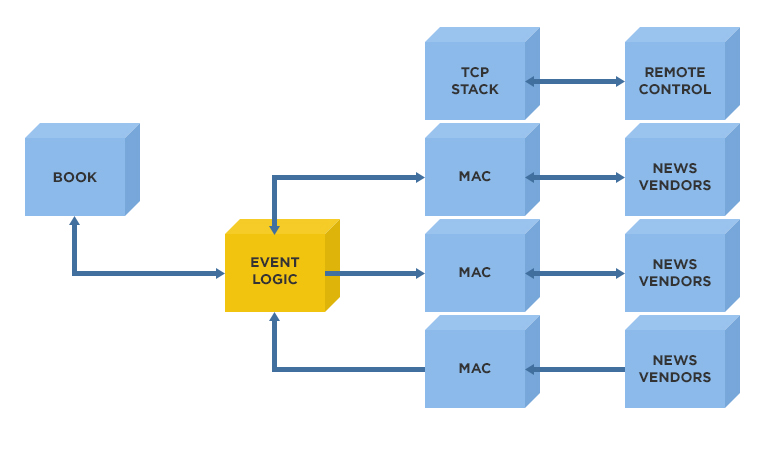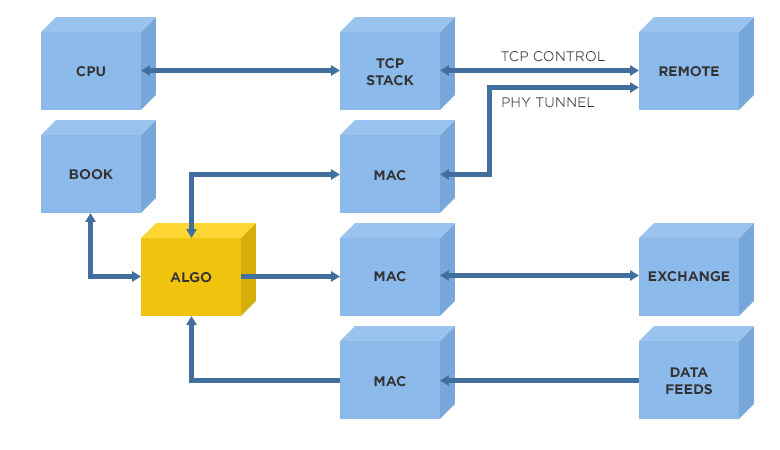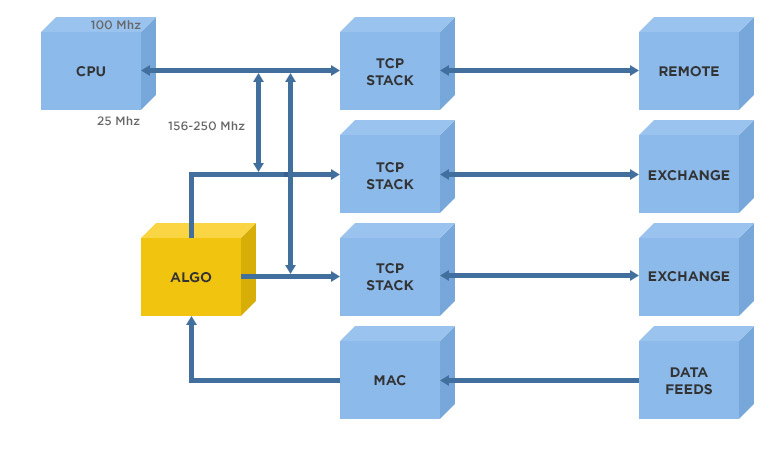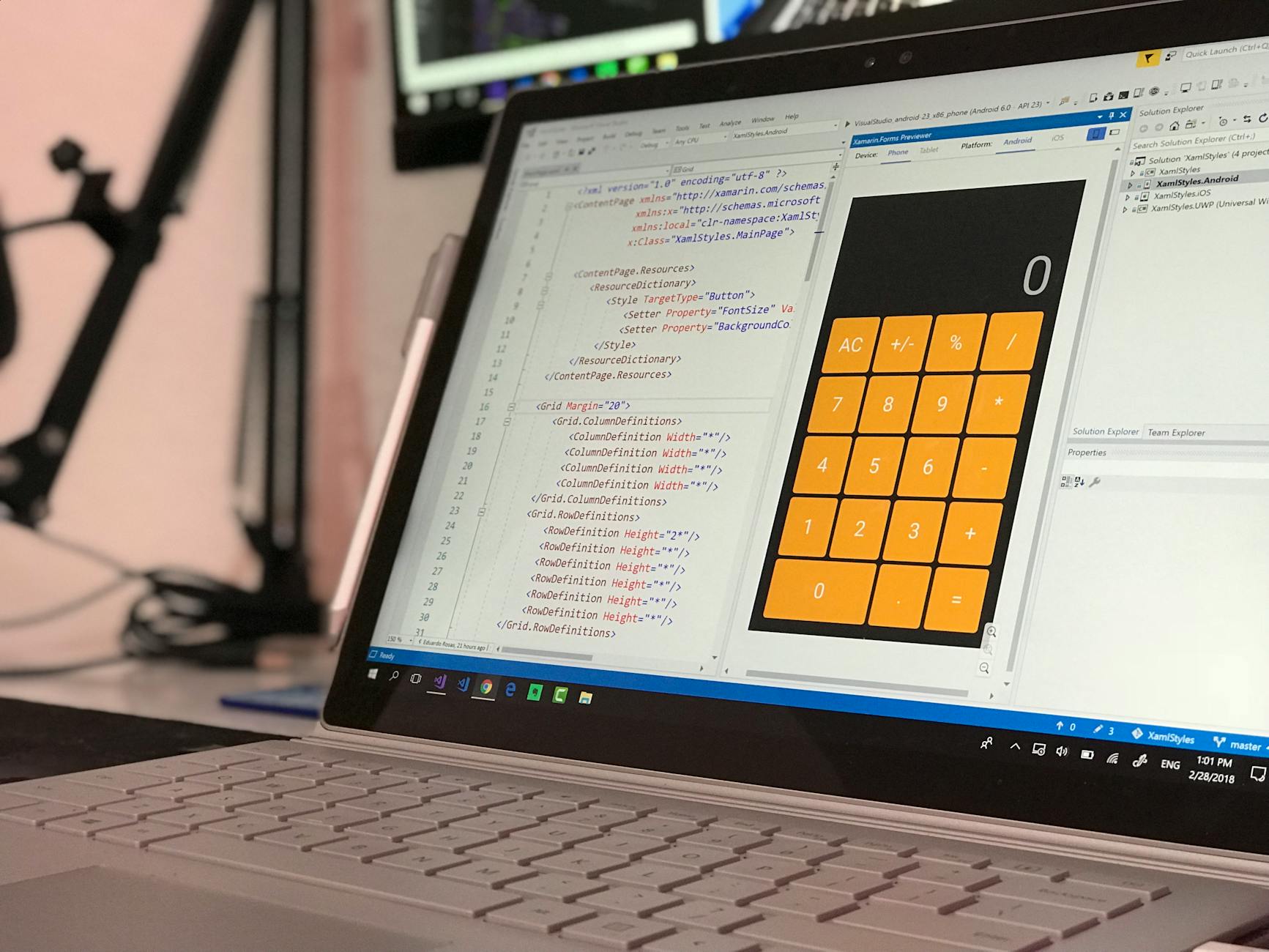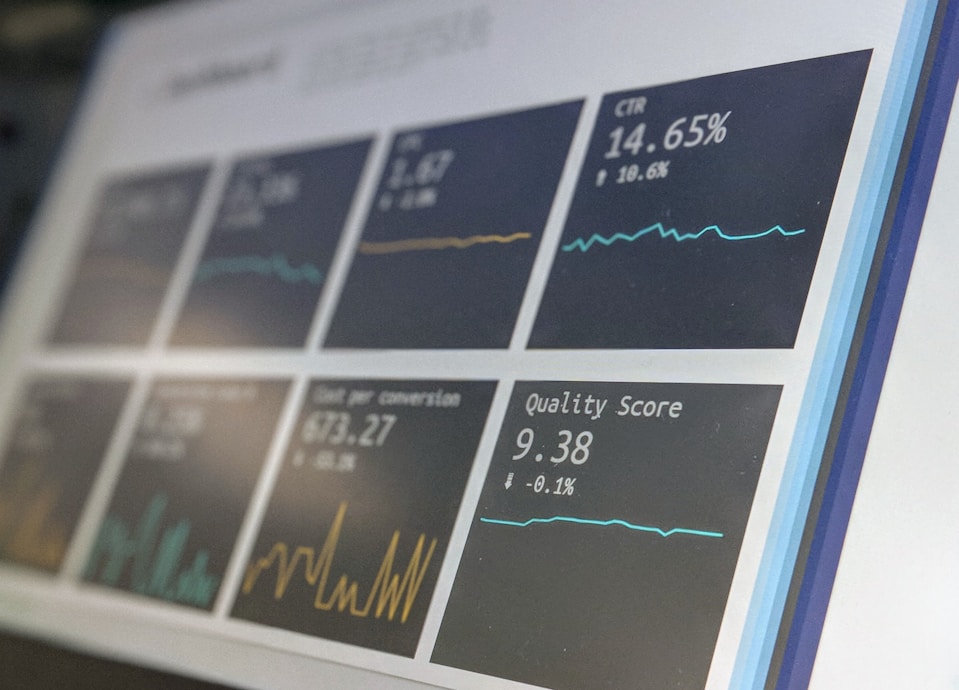Technology Race in High-Frequency Trading
To stay on top of the market landscape, where high-frequency trades are executed in nanoseconds, financial market players have to continually invest in faster software, lower latency networks, and hardware solutions with better performance. The ability to minimize the delay between incoming market data and outgoing orders is crucial.
High-Performance Computing
Achieve lightning-fast processing speed with FPGA programming services, maximizing overall performance for a wide range of applications.
Ultra-Low Latency Networks
Leverage FPGA development services to construct networks with minimal delays and facilitate real-time data transmission for swift and accurate decision-making.
Hardware Acceleration
Harness advanced techniques to enhance computational efficiency and enable rapid execution of complex calculations for HFT algorithms.
Attain Exceptional Performance with FPGA Hardware Accelerators
FPGA-accelerated hardware is the last word in the creation of IT infrastructures with ultra-low latency. Featuring parallel architecture and deterministic nature, FPGA chips can rapidly perform complex mathematical computations and exchange data with trading venues. Operating at the lowest latency even during market spikes, the hardware enables HFT firms to increase trade volumes and retain the leading positions in the financial market.
Hardware Implementation for Complete Tick-to-Trade Processing
- Receiving market data
- Message, symbol, and content-aware filtering
- Data decoding and normalization
- Order book handling
- Trading strategy execution
- Pre-trade check
- Order generation
Core Challenges of FPGA Project Implementation
Unique Design
The designing of FPGA-accelerated systems is a demanding task that requires considerable experience in both hardware and software development. Only a specialist can determine which algorithms would benefit from the hardware implementation and which should be kept in a software shell. When it comes to large designs, there also might be a need to partition them across several FPGA devices.
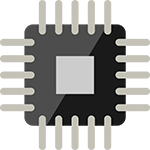
Low-Level Languages
The programming of FPGA hardware differs considerably from writing a software for a generic processor. The functions that take several lines of code in such common programming languages as C or C++, have to be explained in approximately 100 lines when it comes to Verilog and VHDL. Designing logic configurations for an FPGA chip, therefore, is not an easy task and has to be assigned to professionals.

Expensive Team
Engineers that have excellent knowledge of Verilog and VHDL, the core languages used to program FPGAs, are a very scarce resource. Those who have experience in designing platforms for HFT and understand financial market specificities are even harder to find. But even if you manage to do so, the cost of an in-house team of these rare specialists could be a serious burden on your business.

Numerous Vendors
The FPGA-based platforms have already been introduced into various industries. Following the boom in their application, vendors started offering dozens of FPGA chips. Finding the right one for your concrete project is important for achieving the desired results. Considering the substantial price of the hardware, making the wrong choice can also result in significant costs.

Need a Consultation? Talk to Us
CONTACT NOWCustom FPGA Design Solutions
Our customers ask about implementing their strategies in FPGA and always want to learn more about our services: from prototyping and design to achieving high-performance computing. We thought that sharing Velvetech’s expertise in custom FPGA Design Solutions would be an interesting conversation. See below a few quick examples of how custom FPGA programming can work for traders:
Entrust Your FPGA Project to Proven Technology Specialists
Deep knowledge and expertise in financial software development and FPGA-enabled hardware design and engineering services make Velvetech a reliable technology partner for HFT firms. Saving on building in-house teams, you can entirely rely on our FPGA engineers, being confident in the timely delivery of your project.
IT Infrastructure Analysis
By analyzing the IT system currently in place at your company, we identify both software and hardware performance bottlenecks. Our experts then find the ways for latency optimization in the problematic areas. Among others, this may include acceleration of algorithms, removal of unnecessary interfaces, and consolidation of platforms.
System Architecture Design
The designed by Velvetech FPGA-centric architecture offers outstanding operational efficiency. Based on the chips from the market leading vendors, it provides higher density, lower power consumption, and faster implementation. By adjusting our innovative architecture, we are able to create a custom FPGA system design and come up with a solution that perfectly meets your specific business needs.
Algorithm Implementation
Adopting a hybrid approach to the latency optimization, we develop solutions that combine the advantages of both the hard CPU cores and programmable logic. The majority of trading algorithms in such platforms run on FPGAs but under control of more complex and intelligent algorithms on a host system.
Solution Integration and Testing
We carry out a seamless and error-free integration of your FPGA-based platform, ensuring high-speed connectivity between the chip and other components of the system. To ensure the superior quality and efficient operation of the solution, we subject it to thorough testing at each stage.
Our Expertise


Verilog, System Verilog, VHDL, HLS, OpenCL
FIX, CSM, CMi2
10G, 40G, 100G
